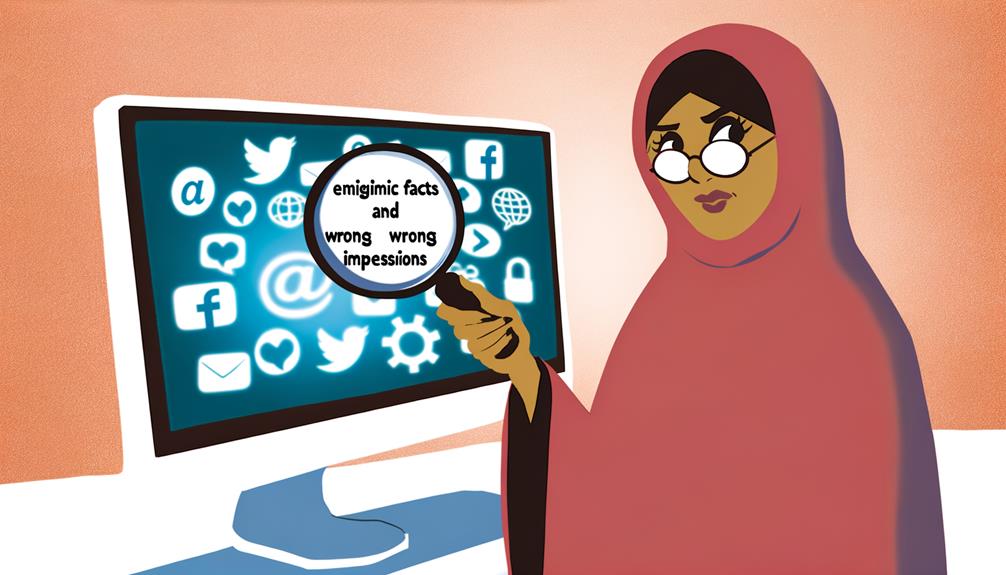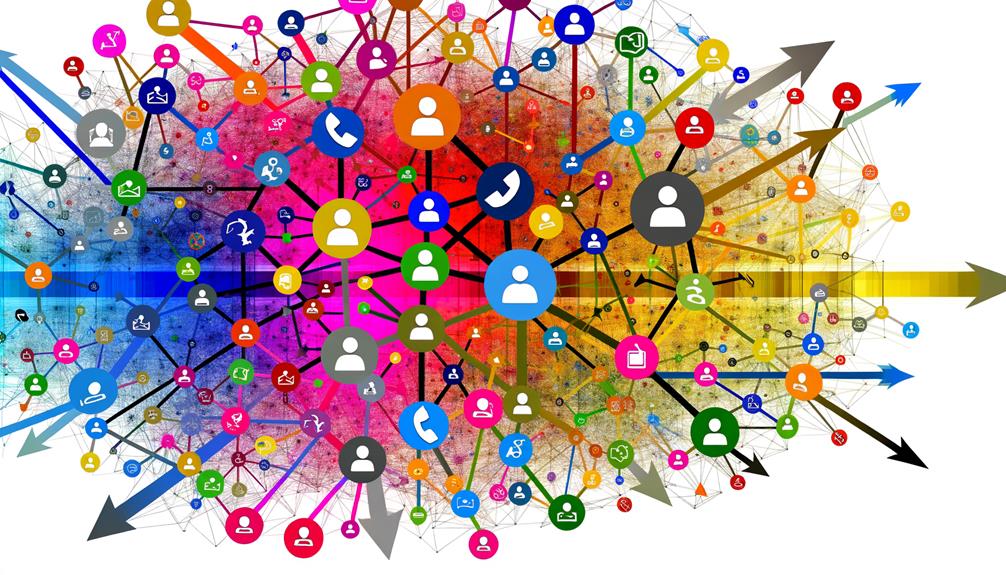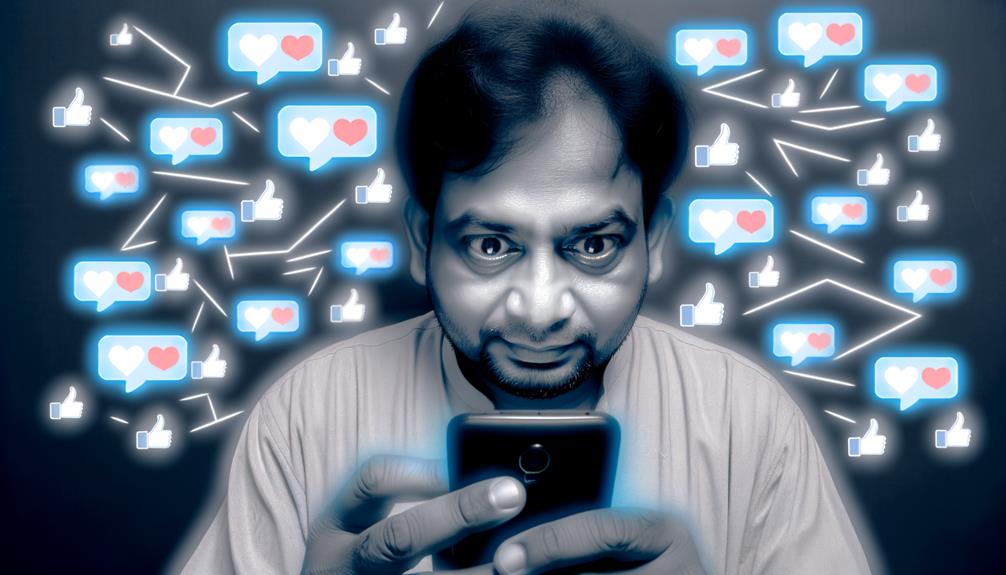As you navigate the digital landscape, have you ever considered social media to be a double-edged sword? The shimmering facade of likes, shares, and comments often conceals a complex web of truths and falsehoods.
But what lies beneath the surface of your online interactions? Stay tuned to uncover the intricacies of social media dynamics, from the rise of influencers to the shadowy realm of data privacy.
The rise of Social Media Influencers
If you’ve ever scrolled through your social media feed, you’ve likely come across the rise of social media influencers who dominate online platforms with their engaging content. These influencers have the power to sway opinions, drive trends, and even shape consumer behavior. Through carefully curated posts, captivating videos, and authentic storytelling, they’ve amassed a loyal following that looks to them for inspiration and guidance.
The appeal of social media influencers lies in their ability to connect with their audience on a personal level. By sharing glimpses of their everyday lives, promoting products they believe in, and engaging with their followers, influencers create a sense of intimacy and trust that traditional celebrities often lack. This authenticity is what sets them apart and makes their recommendations highly influential.
As social media continues to evolve, influencers are becoming key players in the digital landscape, working with brands, shaping popular culture, and influencing the online community at large. Their rise marks a shift in how we consume content and perceive influence in the digital age.
Impact of algorithms on user experience
The way social media influencers are discovered and promoted is significantly influenced by algorithms, impacting the overall user experience on these platforms. Algorithms play a crucial role in determining the content that users see on their feeds, influencing what trends, news, and influencers they are exposed to. This can create a filter bubble where users are only shown content that aligns with their previous interactions, potentially limiting their exposure to diverse perspectives.
| Pros | Cons | Suggestions |
|---|---|---|
| Personalization | Biased outcomes | Transparent algorithms |
| Efficient content | Lack of variety | User control options |
| Relevant updates | Echo chambers | Regular algorithm audits |
Psychological effects of like culture
How does the constant validation-seeking behavior driven by ‘like culture’ affect your mental well-being and self-esteem? It’s crucial to understand the psychological effects of this phenomenon on your overall health.
- Self-Worth Dependency: Relying on likes for self-validation can lead to a fragile sense of self-worth. Your value shouldn’t be determined by virtual approvals.
- Comparison Trap: Constantly seeking likes may push you into comparing yourself with others, fostering feelings of inadequacy and anxiety. Remember, social media often showcases idealized versions of reality.
- Dopamine Influence: The instant gratification from likes triggers dopamine release, creating a cycle of seeking more likes to maintain that ‘feel-good’ sensation. This can be addictive and impact your mood.
- Authenticity vs. Perception: Striving for likes might shift your focus from genuine self-expression to crafting content for approval, potentially diluting your true identity. It’s essential to maintain authenticity online.
Being mindful of these effects can help you navigate ‘like culture’ in a healthier way, prioritizing your well-being over virtual validation.
Data privacy concerns in Social Networking
Navigating social media’s ‘like culture’ not only involves managing your mental well-being but also understanding the critical issue of data privacy concerns in social networking. When you interact on social platforms, your data is collected and used for various purposes, raising questions about privacy and security.
Data privacy concerns in Social Networking
To grasp the gravity of data privacy concerns, consider the following aspects:
| Privacy Concern | Explanation |
|---|---|
| Data Collection | Social media platforms gather vast amounts of user data for targeted advertising and other purposes. |
| Third-Party Access | Your information may be accessible to third-party apps, posing risks of data misuse or breaches. |
| Targeted Advertising | Companies use your data to tailor ads specifically to you, influencing your online experience and decisions. |
| Privacy Settings and Control | Understanding and managing your privacy settings is crucial to control who can access your information on social media. |
Being aware of these concerns empowers you to make informed decisions about your online presence and privacy.
Combatting fake news and misinformation
Combatting misinformation requires critical thinking and media literacy skills to discern fact from fiction in the digital age. To navigate the vast sea of information online, consider the following tips:
- Verify the Source: Always check the credibility of the source before sharing any information. Look for well-known and reputable sources to ensure accuracy.
- Cross-Check Information: Don’t take everything at face value. Cross-reference the information with multiple sources to confirm its validity.
- Question Sensationalism: If a news piece seems overly sensational or biased, take a step back and investigate further before believing or sharing it.
- Be Mindful of Your Bias: Acknowledge your own biases and how they might influence the way you perceive information. Try to approach news with an open mind and a critical eye to avoid falling for misinformation.
Conclusion
You may not realize it, but social media is shaping the way we think, act, and interact with the world around us. Did you know that over 3.6 billion people worldwide are active social media users? That’s nearly half of the global population!
As we navigate through the complexities of social media, it’s important to stay informed and aware of the impact it has on our lives.
Stay curious, stay vigilant, and keep questioning the truth behind the screens.









